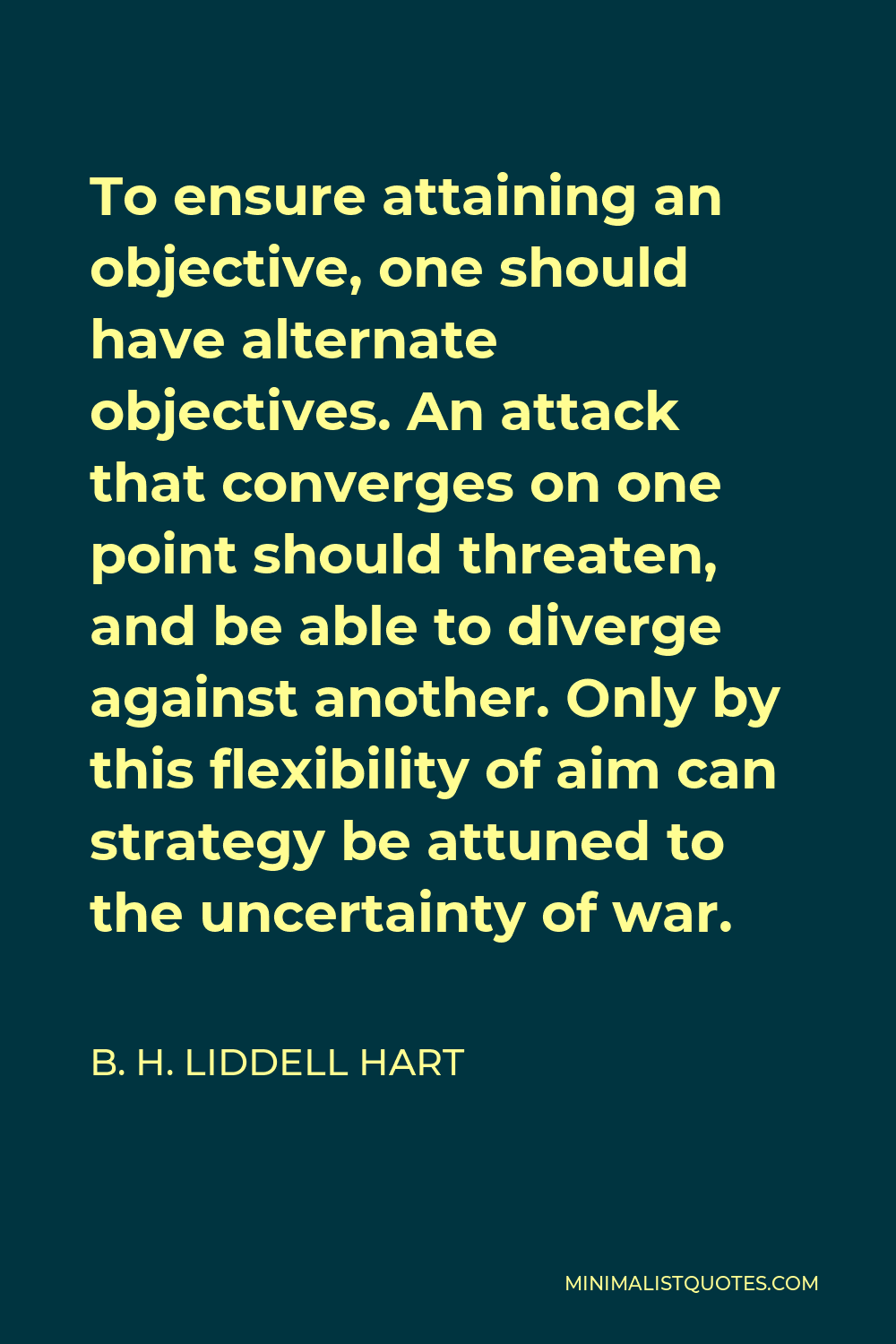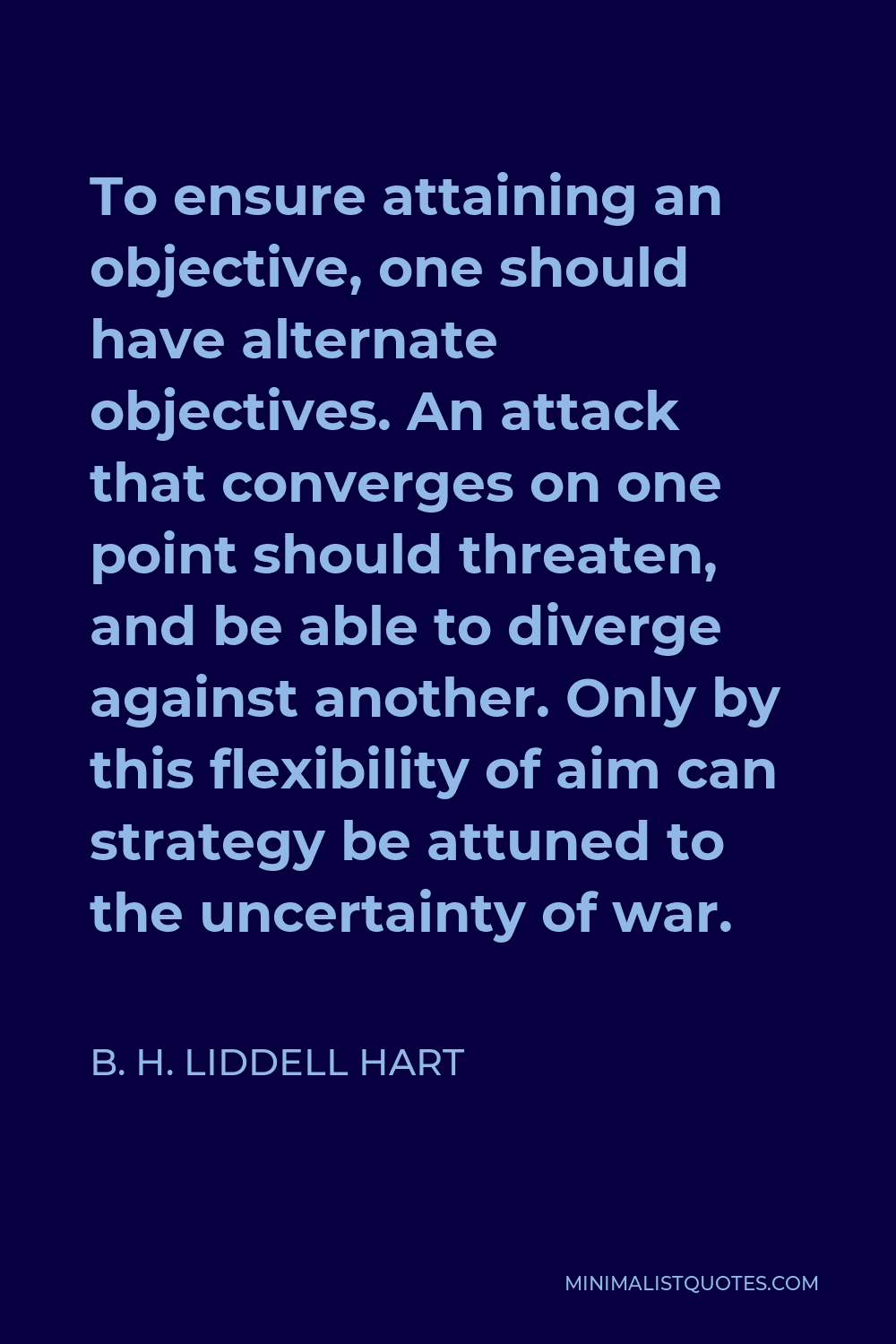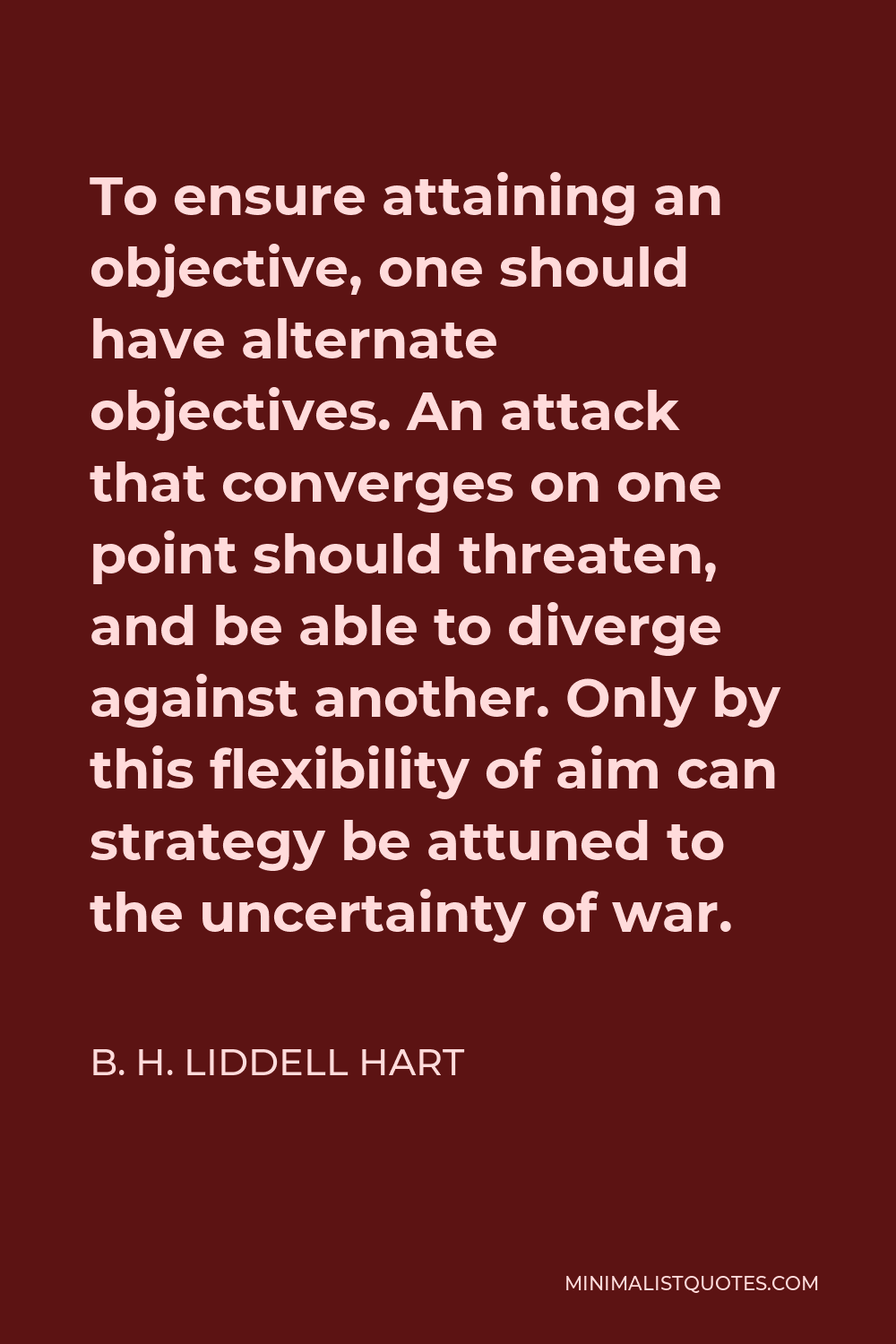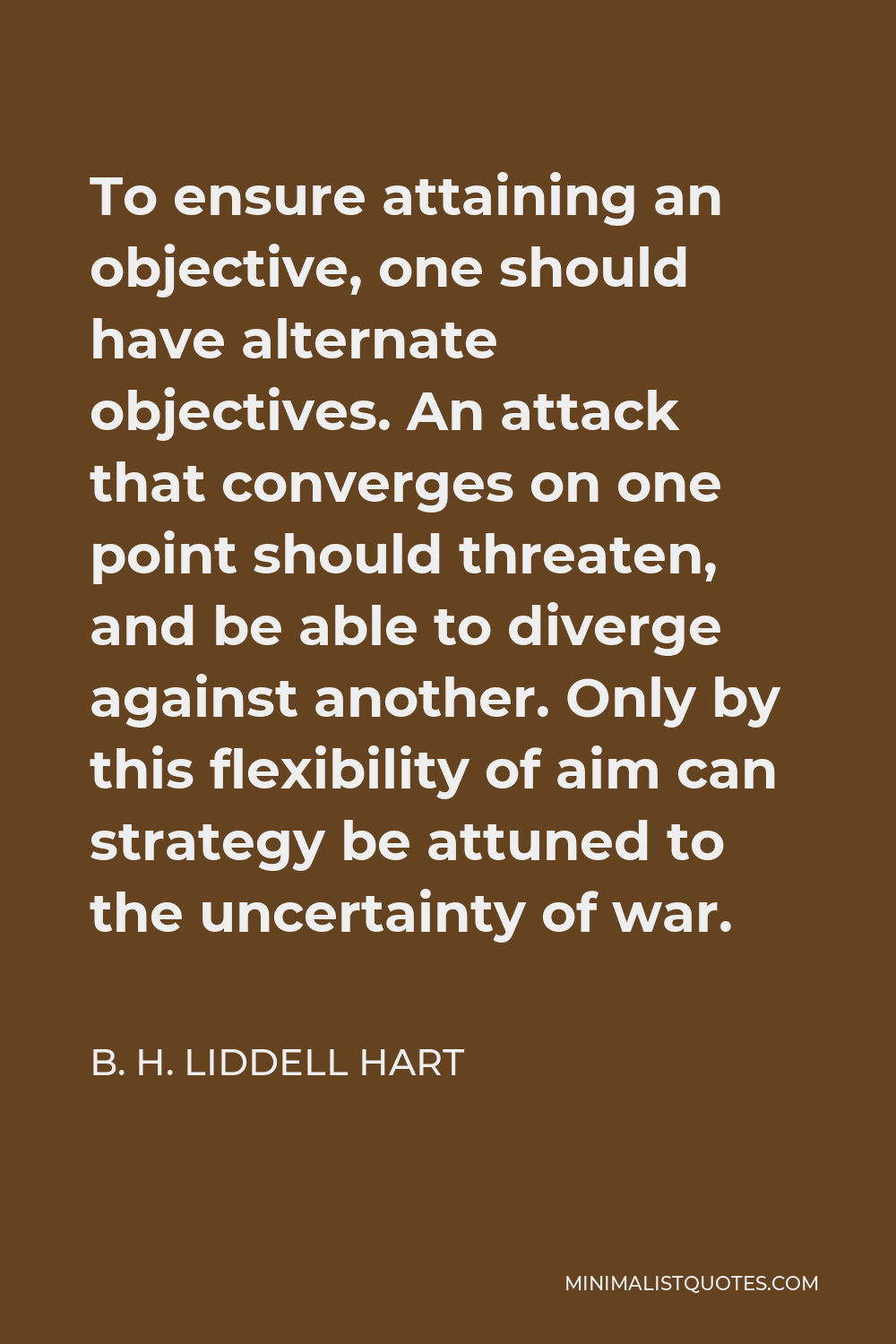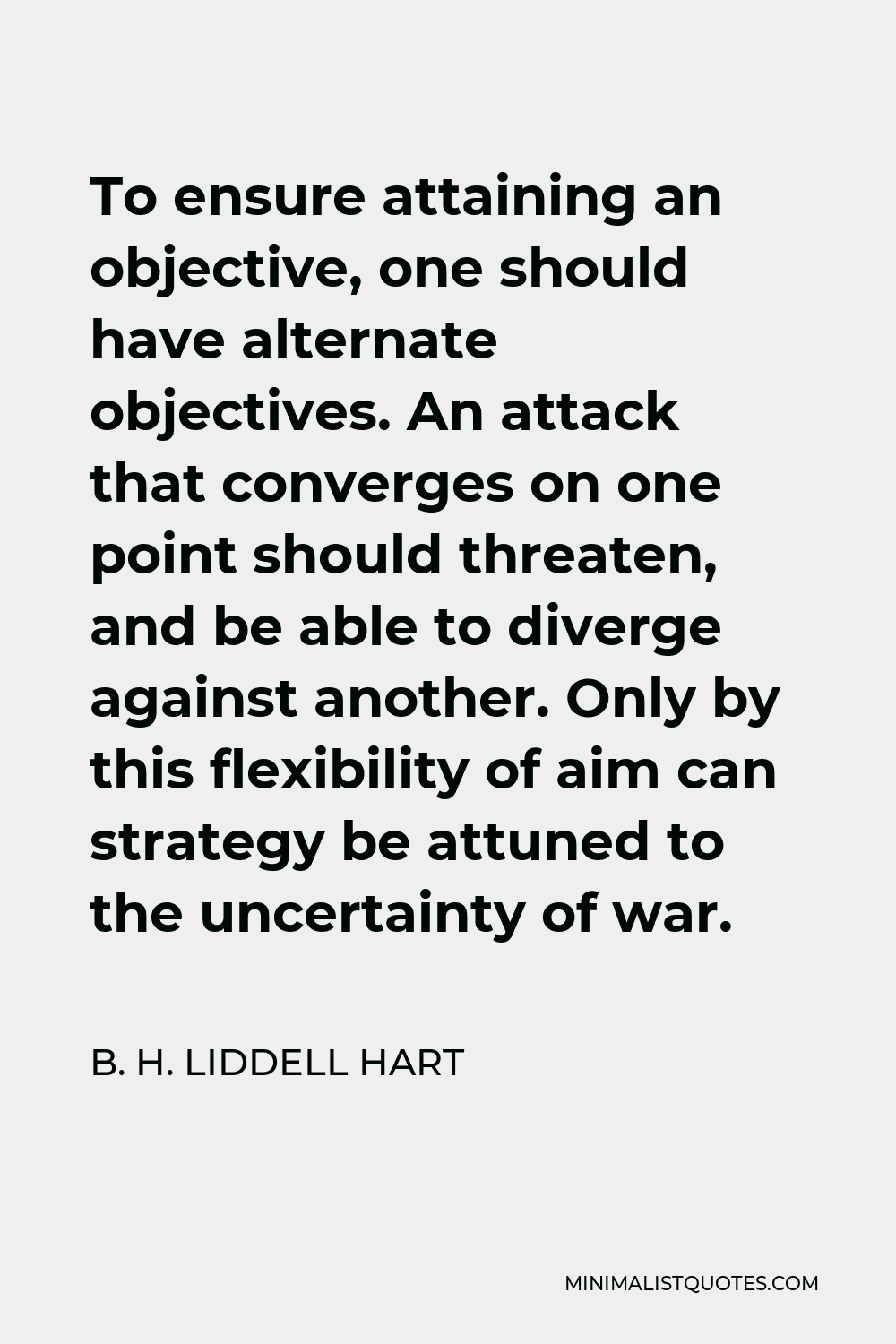War is always a matter of doing evil in the hope that good may come of it.
B. H. LIDDELL HARTTo ensure attaining an objective, one should have alternate objectives. An attack that converges on one point should threaten, and be able to diverge against another. Only by this flexibility of aim can strategy be attuned to the uncertainty of war.
More B. H. Liddell Hart Quotes
-





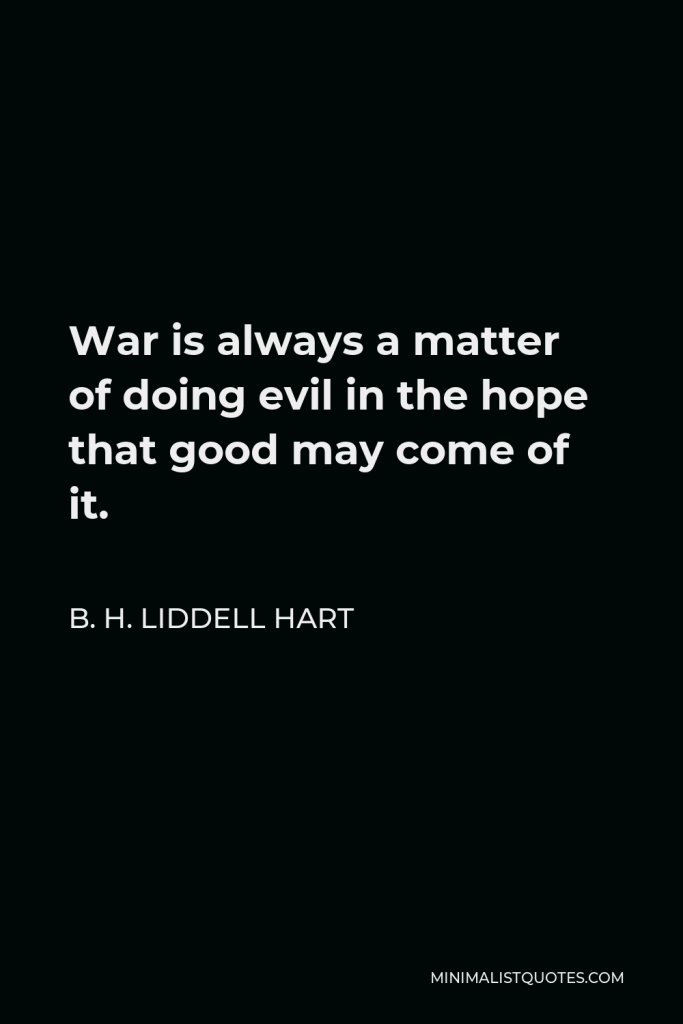

-





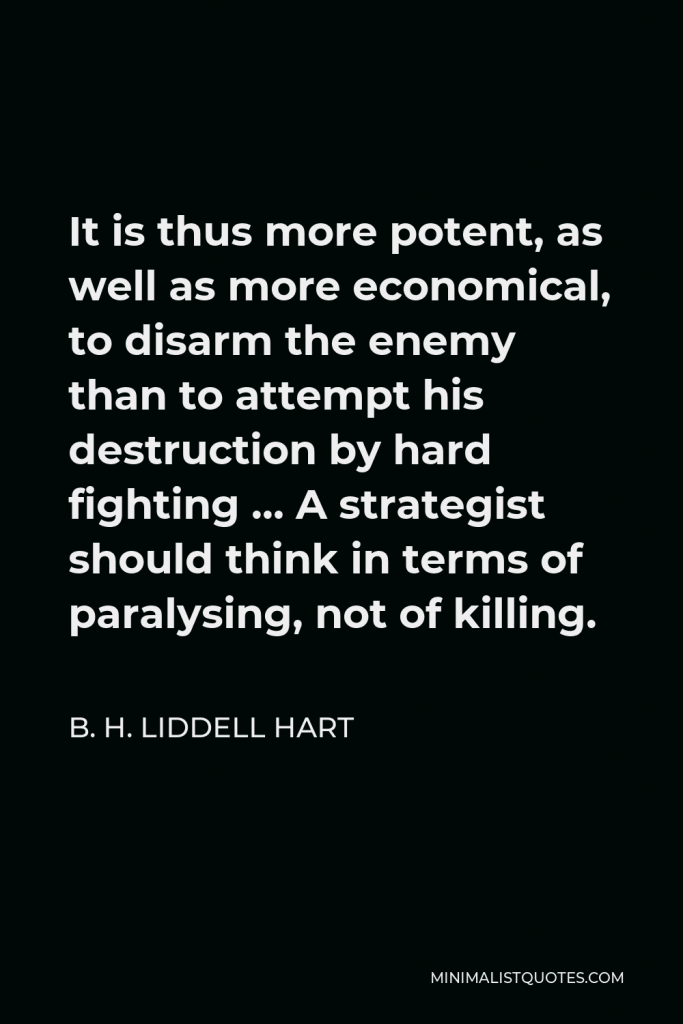

It is thus more potent, as well as more economical, to disarm the enemy than to attempt his destruction by hard fighting … A strategist should think in terms of paralysing, not of killing.
B. H. LIDDELL HART -





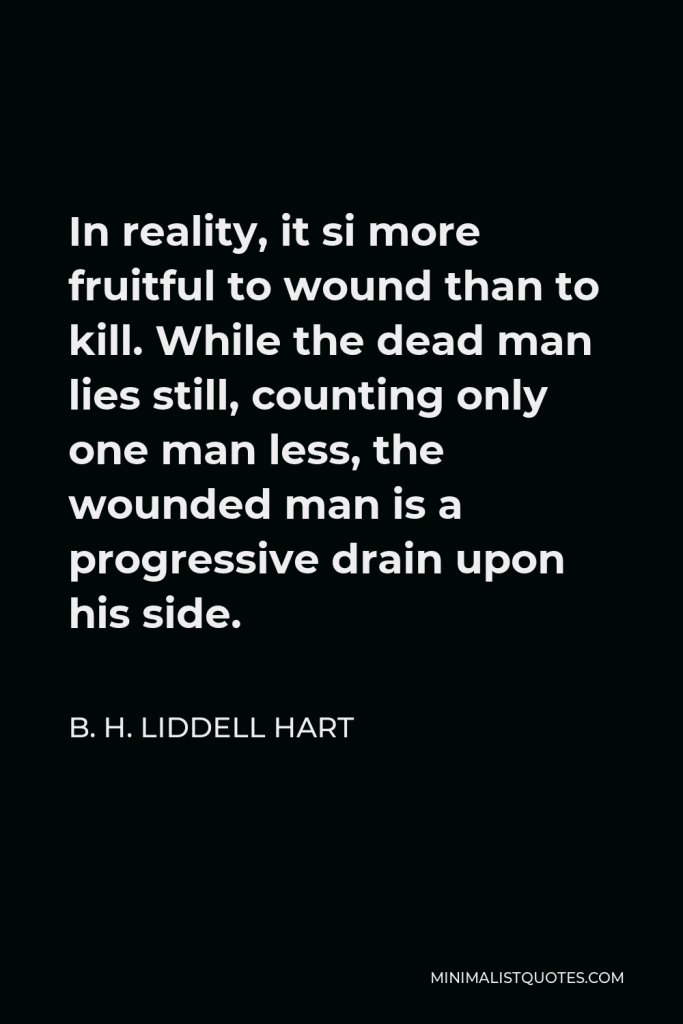

In reality, it si more fruitful to wound than to kill. While the dead man lies still, counting only one man less, the wounded man is a progressive drain upon his side.
B. H. LIDDELL HART -





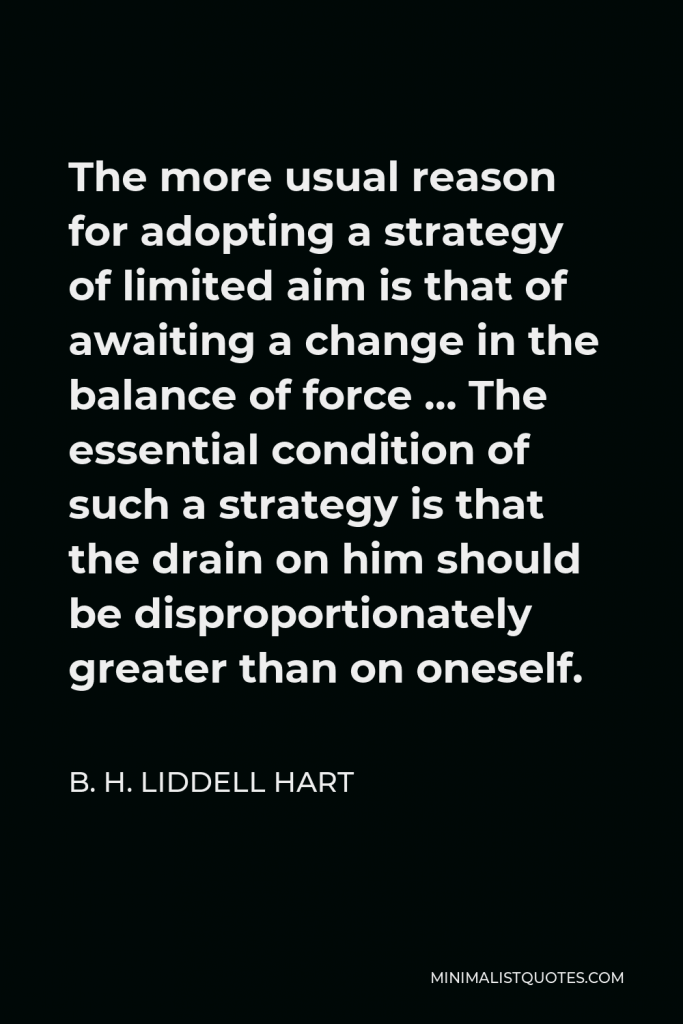

The more usual reason for adopting a strategy of limited aim is that of awaiting a change in the balance of force … The essential condition of such a strategy is that the drain on him should be disproportionately greater than on oneself.
B. H. LIDDELL HART -





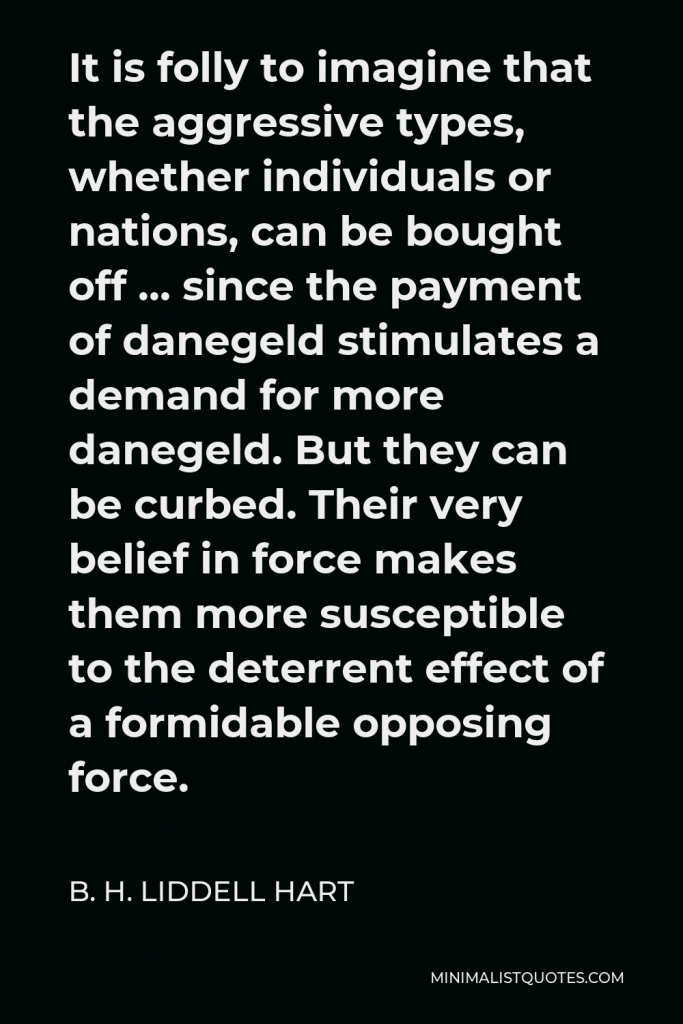

It is folly to imagine that the aggressive types, whether individuals or nations, can be bought off … since the payment of danegeld stimulates a demand for more danegeld. But they can be curbed. Their very belief in force makes them more susceptible to the deterrent effect of a formidable opposing force.
B. H. LIDDELL HART -







Avoid self-righteousness like the devil- nothing is so self-blinding.
B. H. LIDDELL HART -







Ensure that both plan and dispositions are flexible, adaptable to circumstances. Your plan should foresee and provide for a next step in case of success or failure.
B. H. LIDDELL HART -





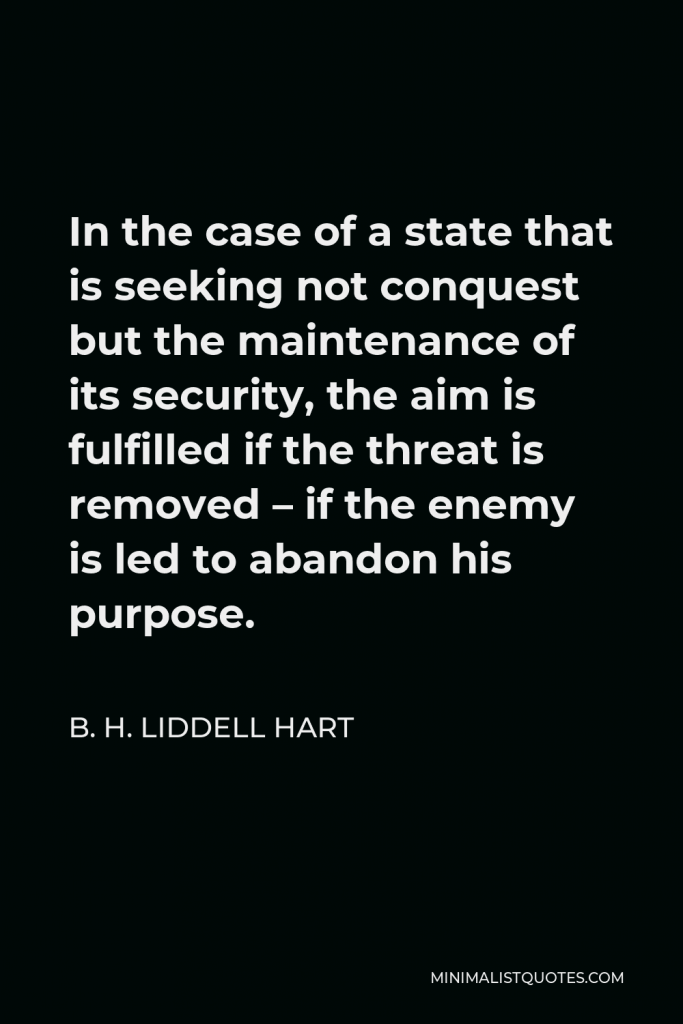

In the case of a state that is seeking not conquest but the maintenance of its security, the aim is fulfilled if the threat is removed – if the enemy is led to abandon his purpose.
B. H. LIDDELL HART -





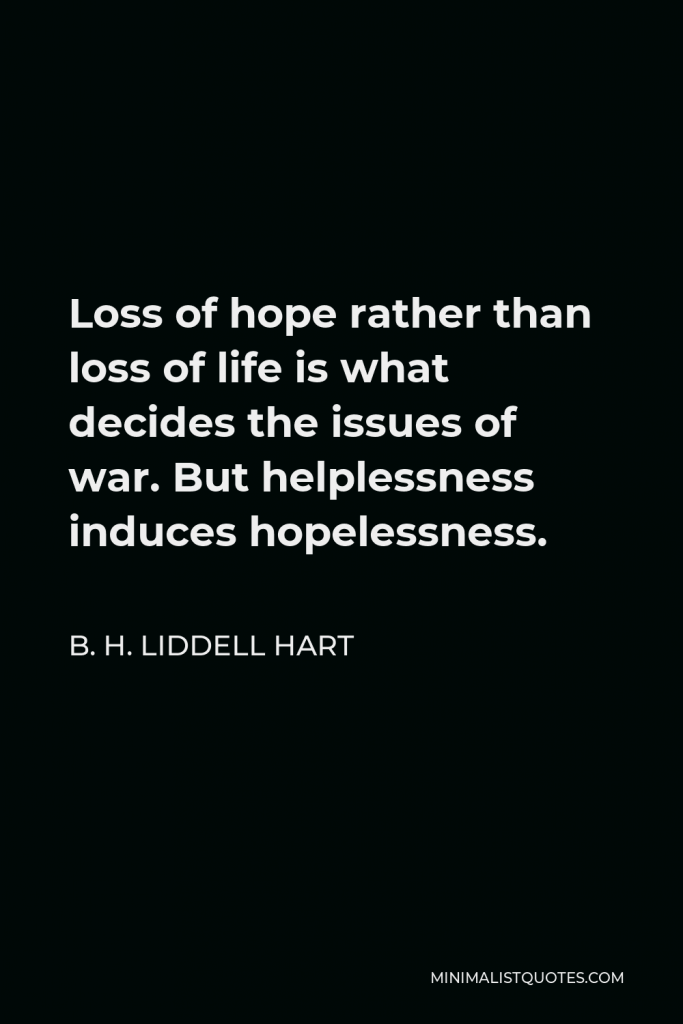

Loss of hope rather than loss of life is what decides the issues of war. But helplessness induces hopelessness.
B. H. LIDDELL HART -





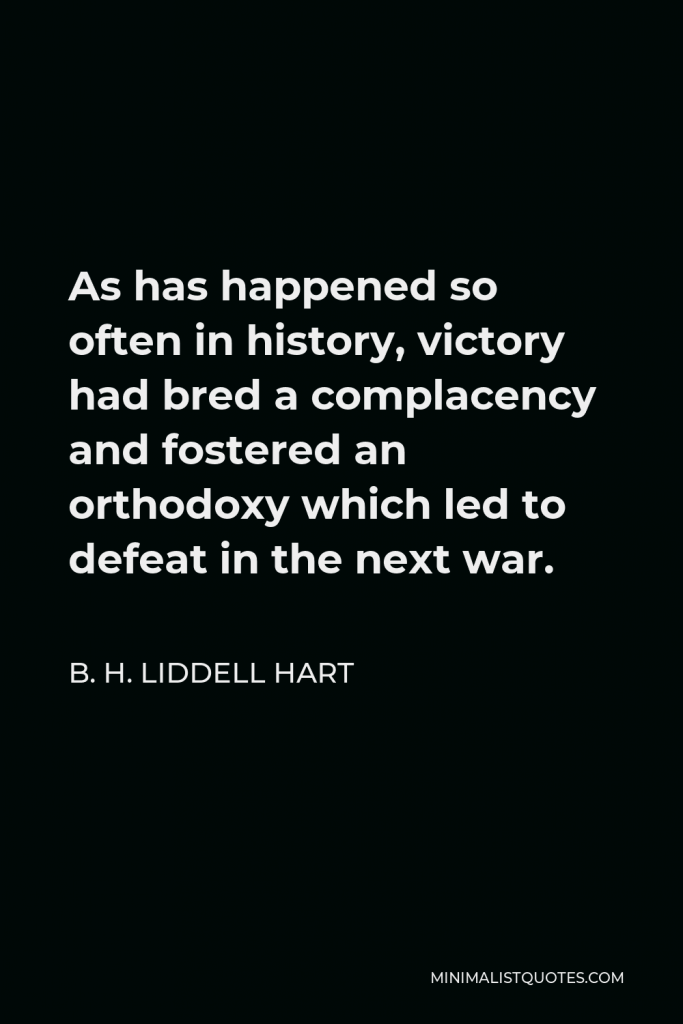

As has happened so often in history, victory had bred a complacency and fostered an orthodoxy which led to defeat in the next war.
B. H. LIDDELL HART -





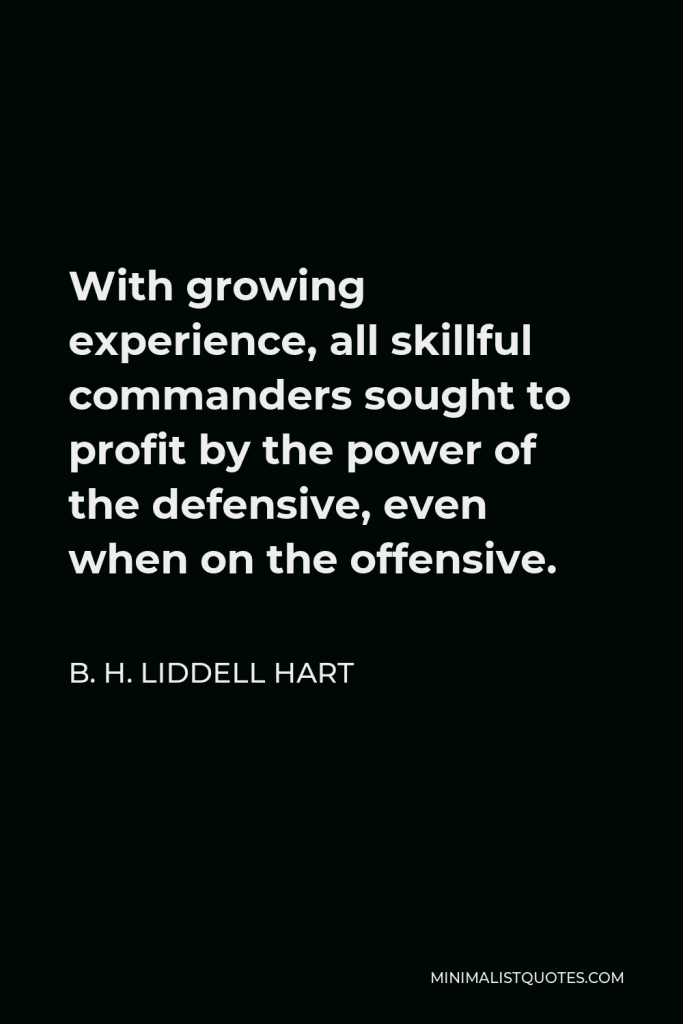

With growing experience, all skillful commanders sought to profit by the power of the defensive, even when on the offensive.
B. H. LIDDELL HART -





![B. H. Liddell Hart Quote - The higher level of grand strategy [is] that of conducting war with a far-sighted regard to the state of the peace that will follow.](https://minimalistquotes.com/wp-content/uploads/2022/10/the-higher-level-of-grand-strategy-is-that-of-cond-683x1024.jpg)

The higher level of grand strategy [is] that of conducting war with a far-sighted regard to the state of the peace that will follow.
B. H. LIDDELL HART -





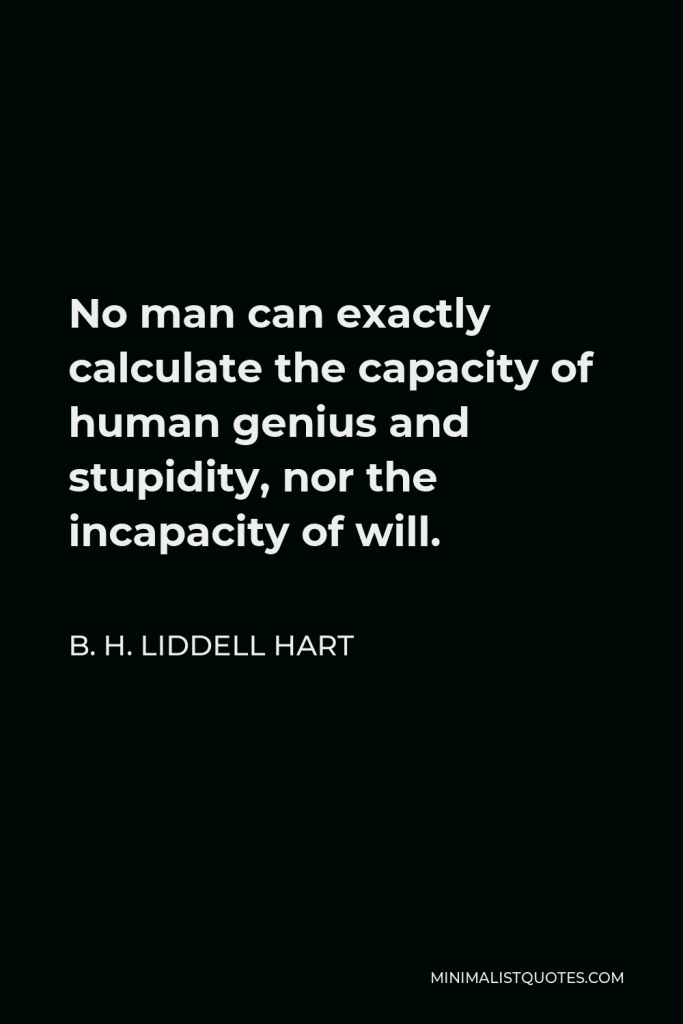

No man can exactly calculate the capacity of human genius and stupidity, nor the incapacity of will.
B. H. LIDDELL HART -





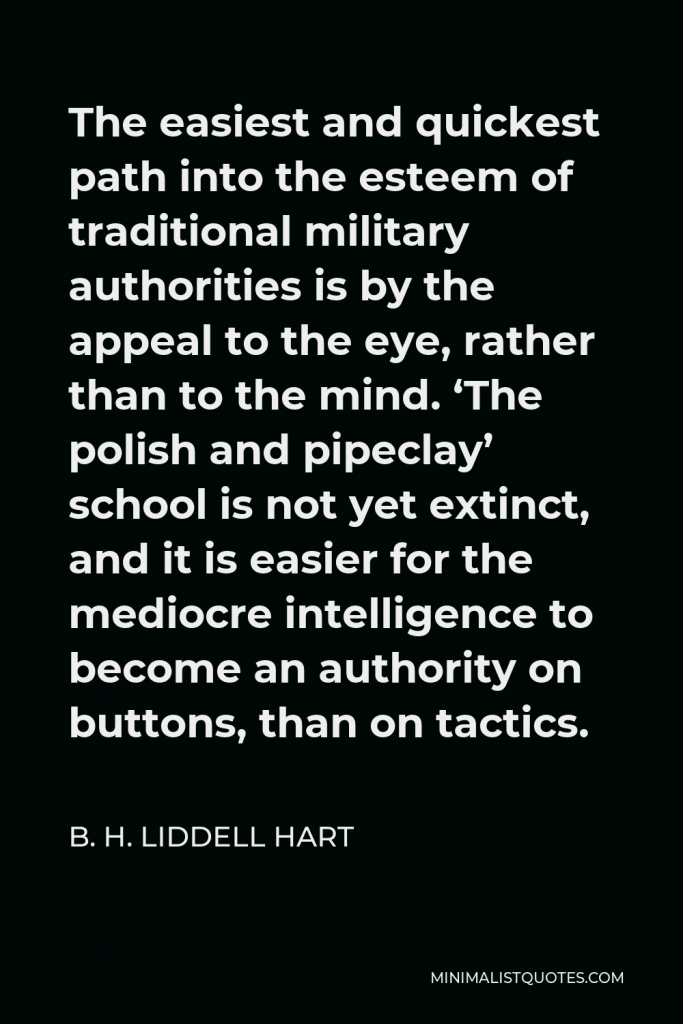

The easiest and quickest path into the esteem of traditional military authorities is by the appeal to the eye, rather than to the mind. ‘The polish and pipeclay’ school is not yet extinct, and it is easier for the mediocre intelligence to become an authority on buttons, than on tactics.
B. H. LIDDELL HART -





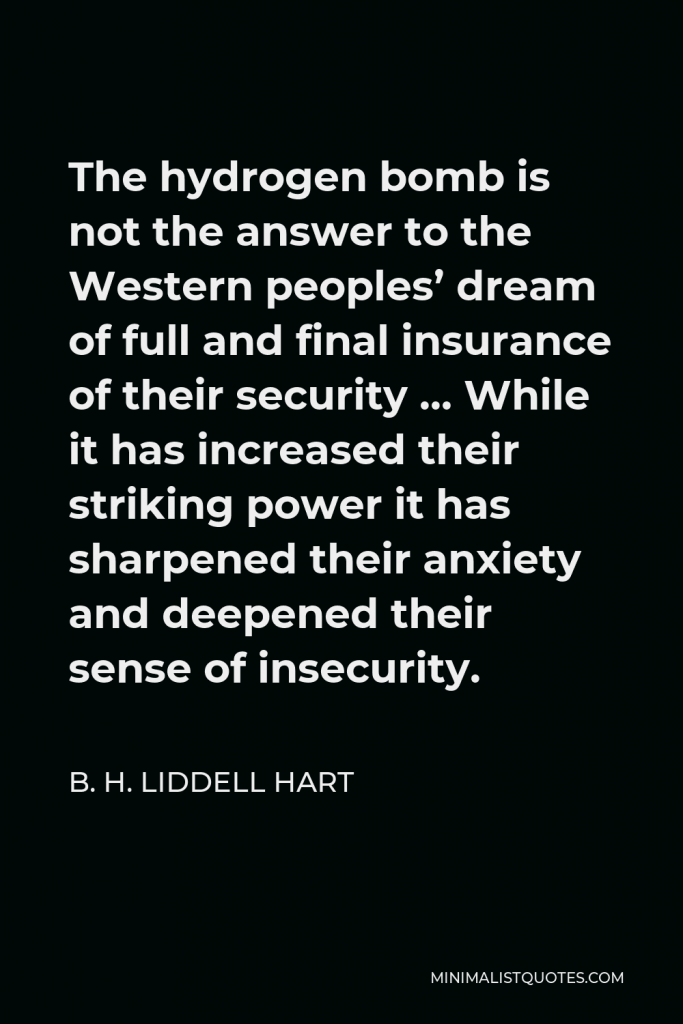

The hydrogen bomb is not the answer to the Western peoples’ dream of full and final insurance of their security … While it has increased their striking power it has sharpened their anxiety and deepened their sense of insecurity.
B. H. LIDDELL HART -







The practical value of history is to throw the film of the past through the material projector of the present on to the screen of the future.
B. H. LIDDELL HART

